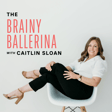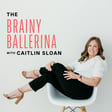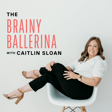
29. Artistry Meets Opportunity at Etoile Dance Competition with Carrie Euker
Carrie Euker has danced professionally with Milwaukee Ballet, David Taylor Dance Theatre, Seven Dancers and Missouri Contemporary Ballet. She is the Founding Artistic Director of Etoile Dance Competition and currently a full time faculty member at the Boston Ballet School.
In this episode, Carrie gives us a sneak peek behind the scenes of Etoile Dance Competition, a concert dance competition focused on artistry, inclusivity, and meaningful networking opportunities in the dance world. We learn what led Carrie to start her own dance competition and what sets Etoile apart in the competition space. If you are curious about the value of dance competitions or looking for one more aligned with your goals, this episode is for you!
Key Moments:
- Early dance training [1:46]
- How Carrie decided to attend college for dance [2:36]
- Her transition from college student to professional dancer [3:34]
- Starting the School of Missouri Contemporary Ballet [8:48]
- How Carrie balances all the aspects of her career and personal life [12:09]
- Carrie’s favorite roles from her professional career [13:31]
- Her teaching philosophy [14:26]
- Why Carrie decided to start her own dance competition [16:38]
- What sets Etoile apart from other dance competitions [18:30]
- What Carrie sees needs to change about competition dance culture [24:33]
- Her biggest piece of advice for dancers pursuing a career [36:02]
Connect with Carrie & Etoile Dance Competition:
ETOILE DANCE COMP WEBSITE: www.etoilecomp.com
ETOILE INSTAGRAM: instagram.com/etoiledancecomp
Links and Resources:
Get your copy of The Ultimate Audition Guide
Set up ticketing for your next event with DRT (Make sure to mention that The Brainy Ballerina sent you!)
1-1 Career Mentoring: book your complimentary career call
Let’s connect!
My WEBSITE: thebrainyballerina.com
INSTAGRAM: instagram.com/thebrainyballerina
Questions/comments? Email me at caitlin@thebrainyballerina.com


